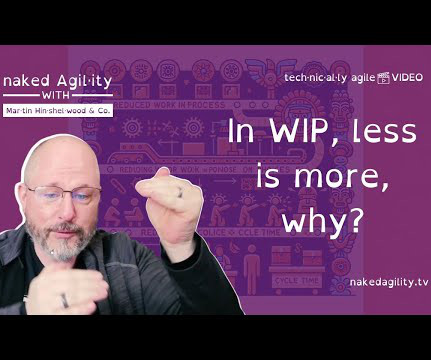Simplifying Work: The Path to Greater Productivity
Scrum.org
NOVEMBER 18, 2023
When we're inundated with tasks, our productivity plummets as we constantly switch contexts, akin to a computer bogged down by too many open applications. We tend to underestimate the time lost to this context switching, which, as Martin points out, can be up to 20% per task. This loss can be quantified using the theory of constraints, which highlights how multitasking is not just inefficient, it's counterproductive.














Let's personalize your content